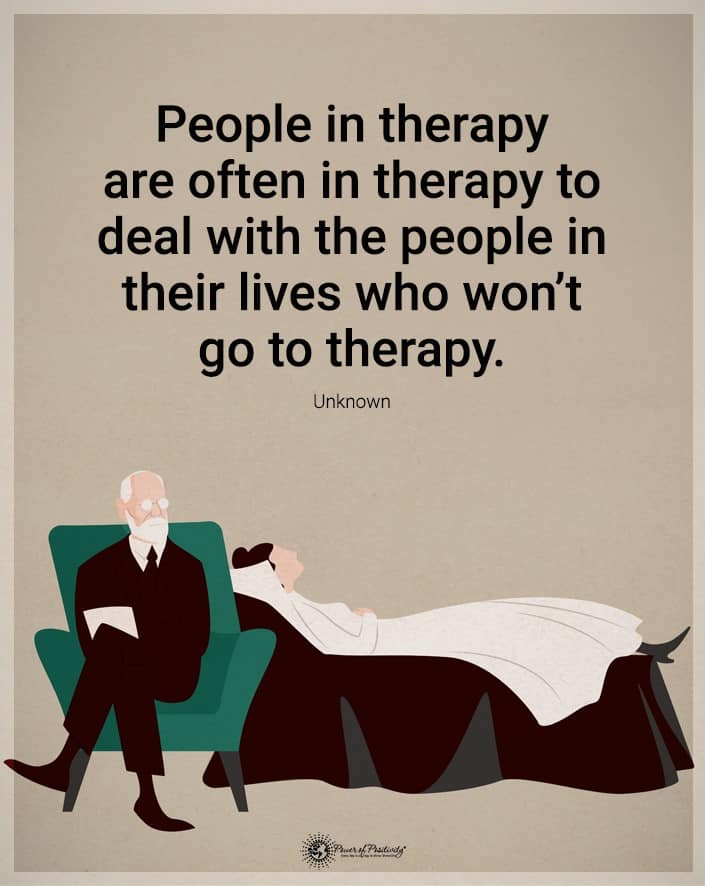Everybody has a past, and few people can look back on their childhood with joy. Parents, even the best ones, make mistakes. Sadly, their errors can cause you problems in your adult life. Most folks think of gaslighting as a form of mental abuse in a romantic relationship, but parental gaslighting can also happen in the home.
Many parents are narcissistic, and while their job is to protect and love you, there are many times that they make you question your sanity. Yes, it’s possible that your parents made you think you’re going crazy. This emotional abuse creates a lot of baggage that people carry into adulthood, and you can even pass along these harmful discipline methods to your kids without realizing it.
It’s a bitter pill to swallow when you know that your parents can be manipulative, toxic, and even downright abusive towards you. These are the folks that are supposed to love you unconditionally, guide you, and they’re in charge of your physical and emotional wellbeing.
Going through these experiences alters your perception, and you start to believe that what’s abusive is normal. Parental gaslighting can and does happen in many families, from the richest to the poorest, but it’s time to call attention to it and end these cycles of abuse.
Ten Parental Gaslighting Behaviors Nobody Should Ignore
Parental gaslighting causes a terrible impact on your psyche. In adulthood, you may have thoughts that no matter what you do or say. How does a parent gaslight their child, and why would they do such a thing?
First, you should know that this is not usually a deliberate act, but many parents only imitate the methods used in their childhoods. However, some folks are downright narcissistic and will play games with their kids for their gain. Here are some classic ways that parental gaslighting occurs.
1. Lying Parents Indicate Parental Gaslighting
Your parents are the two people in the world that you should trust. However, when your parents lied to you about anything and everything, you begin to question the world.
In your adult life, you still are doubting everyone. You might even feel that you need to be a detective as you always have an underlying suspicion that someone is being untruthful. According to an article on How to Adult, many kids mimic behaviors they’re taught.
So, you may grow up to have a problem with telling the truth because it seems like an excellent way to get out of trouble.
2. They Act Like You’re Delusional
Many people have traumatic childhoods because their parents didn’t care about their mental or emotional health. If you confronted them about their lack of interest in your life, they would counter it by saying things like, “I have no clue what you’re talking about.” They want you to question your reasoning and even sanity as it takes the blame from them and puts it on you.
You may find as an adult that you too deny actions and don’t take responsibility. You may think it’s acceptable to turn the guilt back onto others.
3. Parental Gaslighting Often Involves Mocking or Taunting
It’s never okay to mock, taunt, or blatantly make fun of someone. However, when a parent stoops to this behavior, it’s parental gaslighting. For instance, the small child crying because they shut their finger in the cabinet.
The parent could mimic their crying sounds, call them a big baby, or say derogatory things. This behavior is not only humiliating for the child, but it also causes life issues. You might suppress your emotions for fear of being mocked by your spouse.
Additionally, you may learn that this is an acceptable action to use on your kids to get them to stop crying.
4. They Act Like They Know Everything
Your parents know you well, but it doesn’t mean that they know everything about you. Teachers, counselors, and friends often know those inner secrets more than a parent. When a parent pretends they know everything and refuse direction from other professionals, this is gaslighting.
In adulthood, you might be apt to think that you know yourself better than anyone, and you might refuse the help of counselors or other therapeutic staff.
5. Getting Others Involved in Discipline
It’s scary how many parents use this tactic and how toxic it can be for the child. If a child is acting up, a frustrated parent may get grandparents, teachers, friends, other relatives, or whoever they can find to back them up. They want to come across as all-powerful people, so they need to build an army against you.
The problem with this action is that you may feel that you need to do the same as an adult. Whenever you’re caught in something, you may also feel the need for backup. Bringing other people in for verification is unnecessary, and it can stem from the discipline tactics as a child.

6. Those Engaged in Parental Gaslighting Can Pin Mistakes on the Children
It’s hard to answer anyone else, even as an adult. However, it’s easier to pin things on the child instead. For instance, if your father was upset because money was missing from the savings jar, your mom might blame you for keeping the heat off herself. This blameshifting is an example of gaslighting as she blamed someone else for her actions.
You might think that it’s acceptable in life to have a scapegoat to keep you out of trouble. It’s better to acknowledge what you’ve done and face the music, as it’s better than lying.
7. Exaggerate the Little Things
Sometimes parents make a big deal about everything their kids do. This is a classical gaslighting tactic, as anger has no logic. You felt nothing you did was right, and you often walked on eggshells to keep from getting into further trouble.
Your parent would have reacted with intense rage if you spilled a glass of milk or wrecked their sports car, as everything you did was a cause for an explosion. As an adult, you’re still waiting for someone to blow upon you, and you might still feel like you’re walking on eggshells. You may think that your spouse will be angry when you do something, so you might keep things from them for the fear that they will overreact.
8. Apologies Are Non-Existent in Parental Gaslighting
Some parents refuse to apologize even when they are clearly in the wrong. Apologizing to someone means that you must surrender your pride and admit fault, and a gaslighting parent would refuse such things. Having a parent who refuses to accept wrong can be a real issue, but there’s no perfect parent.
In adulthood, you might feel it’s okay to refuse apologies, or you may think you need to apologize for everything as you never received this kindness.
9. Using Toys as Weapons
Many parents are guilty of using toys against their children, but they think this is an effective method of discipline. If your child is misbehaving, you will threaten to take or throw away their cell phone, tablet, or other toys to get them to shape up. However, it’s a threatening behavior that falls into the category of gaslighting.
Additionally, you may feel as an adult that you can threaten and withhold things from your kids, spouse, or even people you manage at work. While there must be consequences for behaviors, threats to take something from someone constantly crosses a line.
10. Your Routine Was Too Strict
Children need to be on a routine for them to thrive. However, parents must be flexible to keep things from being too rigid. While many parents like things to be run in order, they must realize that things will never be that perfect.
If your parents refuse to make any alterations to their schedule, it’s indicative of a control issue rather than for the child’s good. One example of such an issue would be if you didn’t fall to sleep right by 9 pm each night, your parent would become very upset and likely punish you for alleviating from the schedule.
When you reach adulthood, this can cause you to go one of two ways. You might become rigid about your schedule, or you might be a free spirit who has a hard time keeping anything of the sort. It can also lead to feelings of low self-worth and punishing yourself harshly if you miss a deadline.
Final Thoughts on Parental Gaslighting
You may see some of the examples on the list and feel that you suffered through these things. It’s not always straightforward to know if you’re a victim of parental gaslighting. The best way to handle these traumatic childhood injuries is to get help from someone who has more perspective.
A counselor is a great resource to help you go through the ins and outs of parental gaslighting, and they can help you recall past events and bring clarity to the matter. If you live with the consequences of growing up in a home where these behaviors occurred, you should seek the help you need. A professional counselor can help facilitate your healing.
The post 10 Signs of Parental Gaslighting Never to Ignore appeared first on Power of Positivity: Positive Thinking & Attitude.








